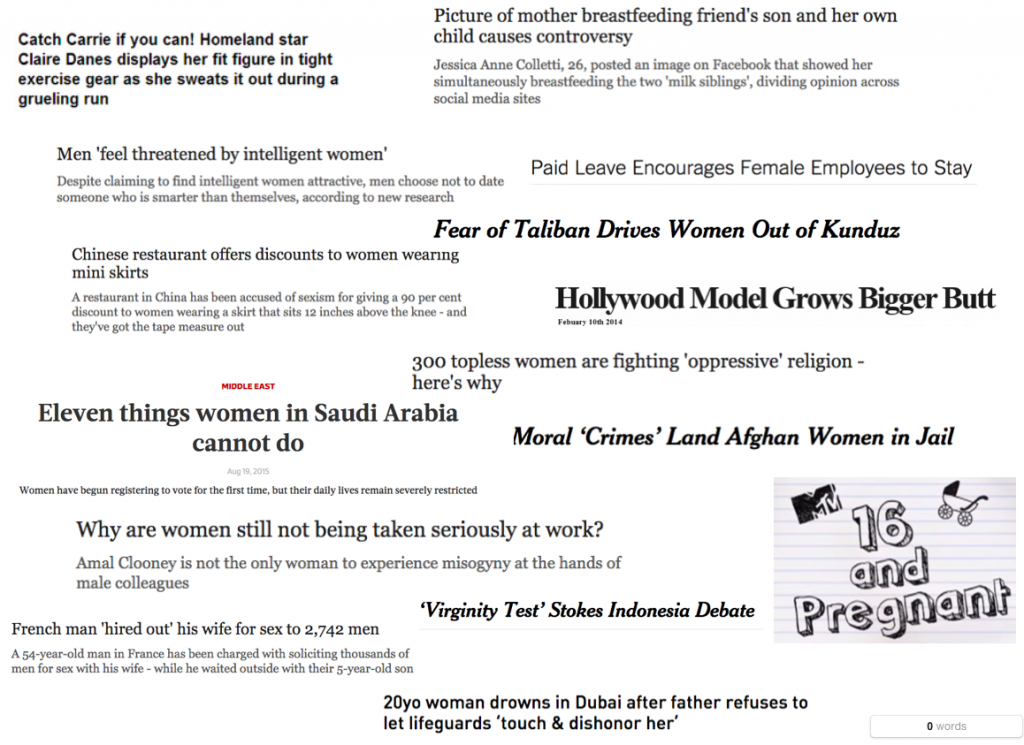Sultana’s Dream
The role of women in Muslim societies has made up a large point of discussion over the past few weeks, especially the influence of islam in determining the status of women in these societies. On multiple occasions we witness a society in which women are marginalized and their existences limited to the desires and wills of men. We see this case very evidently in The Wedding of Zein, where the double standards men employ while treating women can only be described as atrocious. In this case, the men seek the women at the Oasis for sexual gratification and pleasure, and yet desire wives who are not privy to such things and take no functional role in society outside the households of their husbands. What was even more shocking, was the Sheikh’s objectification of the women. Supposedly a holy man, he represents the physical manifestation of hypocrisy, preaching a religion which tells its men to lower their gaze while watching a belly dancer with an animalistic fervor. In short, such a society places the role of virtue and piousness on an unrealistic pedestal for women.
Such a sentiment is spoken out against in the collection of poems entitled We Sinful Women. The collection offers a refreshing outlook on the once muffled voices of women. Similarly, the piece entitled Sultana’s Dream offered a refreshing take on this issue in which men are house-bound and women govern via science in a land of prosperity and advancement. The realities of women in today’s societies was made even more clear given the stark contrast in Sultana’s Dream.This inspired me to make the above interpretive piece since it shows the collective themes when it comes to women in the news. In taking each of these headlines individually we made gloss over them as a one time incident. However, it is clearly a collective issue which is revealing of how women are seen in both western and eastern societies. I found it interesting how even in societies where women are seen as enjoying a life of freedom and a lack of male control, there is still a qualifying factor of sexism. Note for example the Chinese restaurant which gives women discounts based on the length of their skirts, or the general objectification of women as they engage in the most basic day to day tasks.
